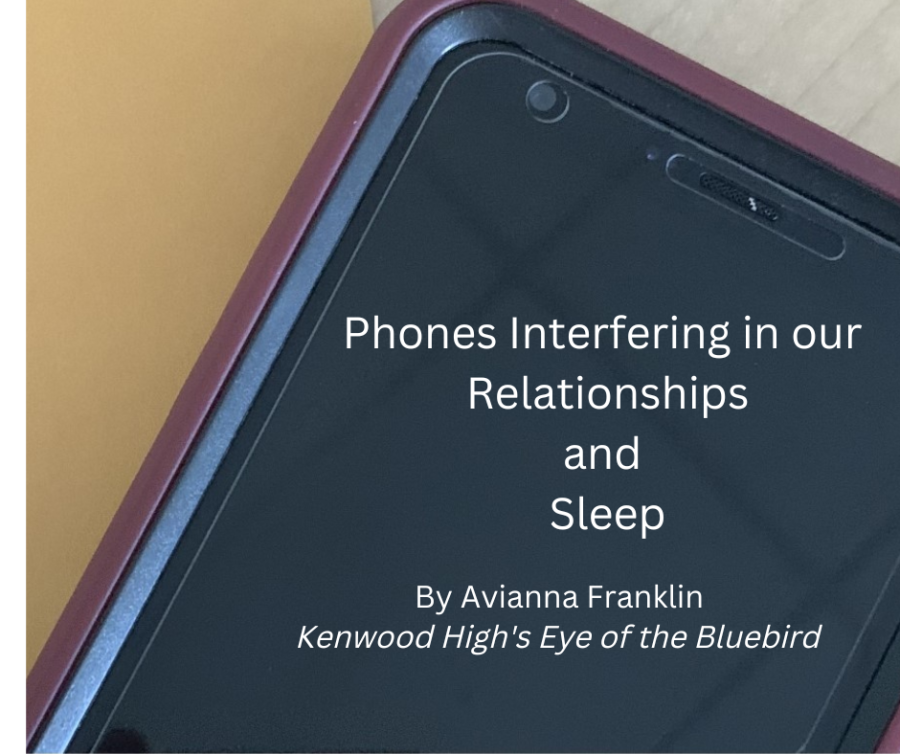Phones Interfering in Our Relationships and Sleep
September 14, 2022
Do you believe that we spend too much time on our phones? A term for this would be called phubbing. Phubbing is the growing phenomenon of people ignoring their friends and family who were right in front of them and instead scrolling through their phones. It’s ironic that social media and the internet was created to make us feel more connected, yet we’ve become so disconnected to those right in front of us.
According to science director Elizabeth Seppala, PhD, of Stanford University’s Center for Compassion and Altruism Research and Education, “despite this age of heightened connectivity, an increasing number of couples come to me citing device usage and social media as an issue in their relationship. This behavior also affects our casual friendships.” Not surprisingly to anyone who has been phubbed, phone users are generally seen as less polite and attentive.
When someone’s eyes wander, we intuitively know what brain studies also show: The mind is wandering (Seppala). We feel unheard, disrespected, disregarded. Studies have shown that having your phone out during a conversation which could include the conversations of class instructions and discussions interferes with the opportunity to connect with the actual people you’re in the presence of (Seppala). In the case of class; obviously if you’re not engaging with the person talking, you’re missing out of class information. Which leads to why schools are stressing to not just be on your phone but to not even have your phone out within sight! As Seppela adds we will feel more connected and empathy to those around us when the phones are away!
According to a Non profit group called Common Sense Media, “American teenagers spend an “astounding” nine hours a day with digital technology, entertaining themselves with streaming video, listening to music and playing games.” As if that’s not concerning enough, it’s not much better for younger children. “Tweens- aged 8 to 12 =are spending six hours with media, adds the Common Sense Media report (Edwards and Fox).
It’s not only our relationships that are suffering if we don’t know how to moderate our phone usage but our sleep. Children are particularly vulnerable to sleep problems stemming from electronic devices that emit blue light. Numerous studies have established a link between using devices with screens before bed and increasing the amount of time it takes someone to fall asleep. Additionally, children who use these devices at night often do not receive enough high-quality sleep and are more likely to feel tired the next day (Dewar).
Technology plays a major role in our lives, and most of us may find it hard to remember a time when phones, computers, tablets, and other devices weren’t a part of everyday life. While technology certainly makes life easier and more convenient at times, many wonder whether or not our society is too dependent on technology and whether it’s causing more harm than good.
Sources:
Dewar, Gwen, PhD. “Tech at Bedtime: Do Electronic Media Devices Cause Sleep Problems in Children.” Parenting Science. An Elite Cafemedia Family & Parenting Publisher. 2021. Web Accessed 25 May 2022.
Edwards, Erika and Maggie Fox. “Teens Spend ‘Astounding’ Nine Hours a Day In Front of Screens”. NBC News. NBC NEWS. 3 November 2015. Web Accessed 24 May 2022.
Seppala, Elizabeth, PhD. “What is Your Phone Doing to your Relationships?” Greater Good Magazine: A Science-Based Insights for a Meaningful Life. Berkeley University of California. 10 October 2017. Web Accessed 24 May 2022.
